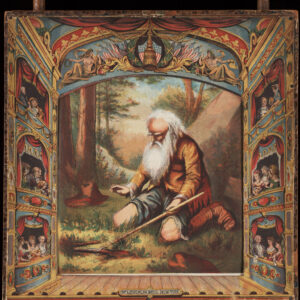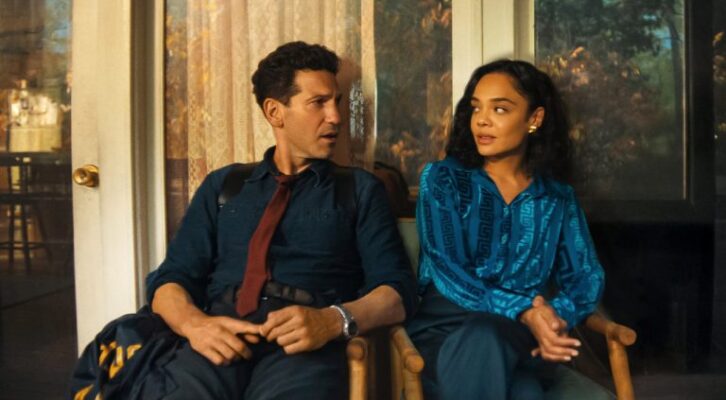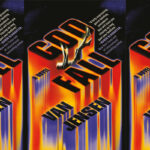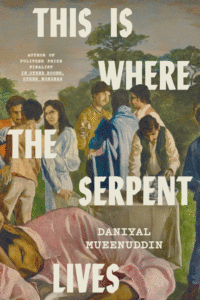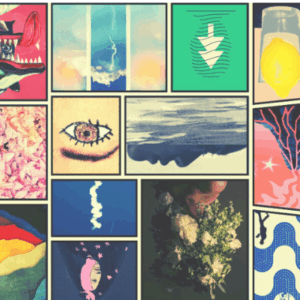
Cheryl Strayed is Fed Up with Memoir-Bashing
This Year's Kore Press Memoir Award Judge Talks Literary Justice and More
Cheryl Strayed is a feminist phenomenon, what with her dazzling, bestselling memoir Wild, and her wildly popular Dear Sugar advice column, which is now a bestselling book and a NY Times podcast. But unlike many famous authors who hit it big and immediately forget about everyone coming up behind them, Cheryl goes out of her way to support emerging literary feminists.
Case in point, she recently signed on to judge the annual Memoir Award for Kore Press an innovative publisher of vital feminist work in my own gritty, wild, literary home town of Tucson Arizona. I sat down recently to talk to Cheryl about literary justice and what we should be asking of our art in this political moment.
*
Katherine Standefer: What does “literary justice” mean to you?
Cheryl Strayed: The writers who have been accepted, celebrated, and heard by our culture are most often those who are accepted, celebrated, and heard in other arenas, in part because of their racial, economic, cultural, and gender privilege. Literary justice to me means developing a consciousness about that and taking action to broaden the range of voices that make it onto our pages and screens. I agreed to judge the Kore Press memoir contest because they asked me to and I support their feminist mission.
KS: Earlier this year, Roxane Gay cancelled her book contract with Simon & Schuster because of their support of alt-right media personality Milo Yiannopolous—which strikes me as a different kind of action toward literary justice, one arguably more complicated. Do you think all publishers are obligated to consider whose voices they are elevating? What do you see as the potential of non-profit publishers in this regard?
CS: Yes, I think publishers are obligated to deeply consider what they publish and why, whether they are non-profit or not. I don’t believe in censorship, but neither do I think publishers should print everything that comes along just because they think it will sell.
KS: What do you think literary community should ideally look and feel like, and how do you think we might extend a vision of literary justice?
CS: There are so many kinds of literary communities—large and small, local, national, and international, online and offline—and I’m a member of many of them in different ways, so it’s hard for me to say there is one model of what literary community should look like. Having said that, the thread that matters the most to me is kindness. Kindness and good will—the sense that other people wish you well, care about your struggles and successes, and that you feel the same way towards them. There’s a lot of talk about how competitive writers are and while I think most people grapple with jealousy from time to time, the overall feeling I have among the literary communities that have been meaningful to me is the sense that we are a tribe and we have each other’s backs. We understand each other on an essential level and we hold each other in unconditional positive regard. Literary community at its best is a diverse group of deeply kindred spirits.
KS: I feel lucky to be a part of the surprising, robust, gritty, and gorgeous literary community in Tucson, AZ. What’s Portland’s literary community like?
CS: Vibrant, multi-faceted, populated with writers at many different places in their careers—from aspiring writers to people who’ve published many books—and people who publish with a wide range of presses. Portland is a small enough town that we’re all there together and most of us know each other at least glancingly. When someone in the local writing community publishes a book and has a reading at our beloved Powell’s so many other writers show up. It’s a moving experience because the love in the room is quite palpable. We also have some great independent presses here—Hawthorne Books. Tin House Books, Future Tense, and others.
KS: What vital labor do you think artists offer a society?
CS: Stories and images made of language that allow us to see ourselves and others with more complexity and compassion.
KS: What should we be asking of our art in this political moment?
CS: Precisely the same thing we ask at every moment: that it tell us the deepest truth, that it reveal to us the most profound beauty, that it be merciless in showing us our sorrow, that it show us nakedly to ourselves, that it inspire us to reach harder.
KS: How does feminist writing in particular offer us these things? What feminist works have you seen doing this important work in the past few years?
CS: Feminist writing shows us what for so long has been occluded in most literature: the full humanity of women. Some of my favorite feminist books of the past few years: Claire Dederer’s Love and Trouble, Sandra Tsing Loh’s The Madwoman in the Volvo, Roxane Gay’s Bad Feminist, Lidia Yuknavitch’s The Chronology of Water, Robin Romm’s anthology, Double Bind, Chimamanda Ngozi Adichi’s We Should All Be Feminists, everything by Rebecca Solnit, Caitlin Moran, Lindy West, Jessica Valenti, Jill Filopovic and so many others. I truly can’t name them all. We are rich in feminist writers. That makes me gloriously happy.
KS: In one of my recent favorite defenses of the memoir (The Heart-Work: Writing About Trauma As A Subversive Act, recently published by Poets & Writers Magazine), Melissa Febos writes:
Writing about your personal experiences is not easier than other kinds of writing. In order to write that book, I had to invest the time and energy to conduct research and craft plot, scenes, description, dialogue, pacing—all the writer’s jobs, and I had to destroy my own self-image and face some unpalatable truths about my own accountability. It was the hardest thing I’ve ever done… Navel-gazing is not for the faint of heart. The risk of honest appraisal requires bravery. To place our flawed selves in the context of this magnificent, broken world is the opposite of narcissism, which is building a self-image that pleases you.
Your Sugar persona seems to me to echo this call to “honest appraisal” in crafting works of memoir; what has the process Febos described been like in your own writing life?
CS: Melissa nails it beautifully—and I’d also add her books to that list above in the previous question. I know that deep, dark examination she writes about so well. There is nothing easy about doing all you have to do to make people and emotions alive on the page or screen while also scooping out the truth of your own heart, while also making a serious attempt to tell it like it actually was. And I couldn’t agree with her more about a good memoir being the opposite of narcissistic.
I’m so bored with arguments against memoir. They’re almost always simple-minded and ignorant. I tend to know people are in trouble when they speak in categorical terms about anything like an entire literary genre. Yes, there are memoirs that are narcissistic and awful! Just like there are novels that are narcissistic and awful and there are poems that are narcissistic and awful and there are plays that are narcissistic and awful. Narcissism and awfulness has absolutely nothing to do with the genre itself. I think some people are threatened by the idea of memoir. Like “how dare someone who isn’t famous get to write about his or her life and expect others to read it!” But the truth is, we’ve been using our lives as material since the dawn of literature, in every genre.
KS: Entering a contest is in some ways an act of faith; I think most of us receive far more rejection letters than acceptances. What do you think is the role of failure in a career?
CS: Not getting everything you want is part of life, and it’s certainly part of a writer’s life, all along the way—from beginning to end. Part of succeeding in life and in writing is being able to accept that. I know what it feels like to send your manuscript into a contest with high hopes and I know what it feels like to get that letter or email saying you didn’t win. It stings. It can be enraging, discouraging, and depressing. I know that. But what I also know is you just have to keep going, keep writing, keep pursuing the next path to publishing your work. Rejection feels so personal, but it truly isn’t. Any given reader, judge, committee, or editor is one person with one inevitably subjective opinion. My failures have made my successes all the sweeter.
KS: What are some books and authors you can recommend that we should make sure we’re not missing right now?
CS: I’m reading Sherman Alexie’s new memoir You Don’t Have to Say You Love Me, and I’m loving it so much. He astonishes me, really. His vulnerability and honesty is profound. Every chapter makes me feel lucky I got to read it.
Katherine Standefer
Katherine E. Standefer writes about the body, consent, and medical technology from Tucson. Winner of the 2015 Iowa Review Award in Nonfiction, her work appears in The Best American Essays 2016, Beautiful Flesh: A Body of Essays ), and How We Speak To One Another: An Essay Daily Reader, and many literary journals. Standefer earned her MFA in Creative Nonfiction from University of Arizona, where she now lectures in a narrative medicine pilot at the College of Medicine. She prefers cowboy boots.









